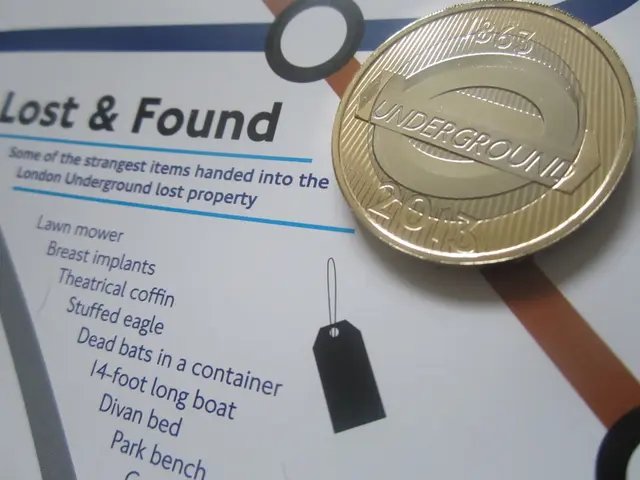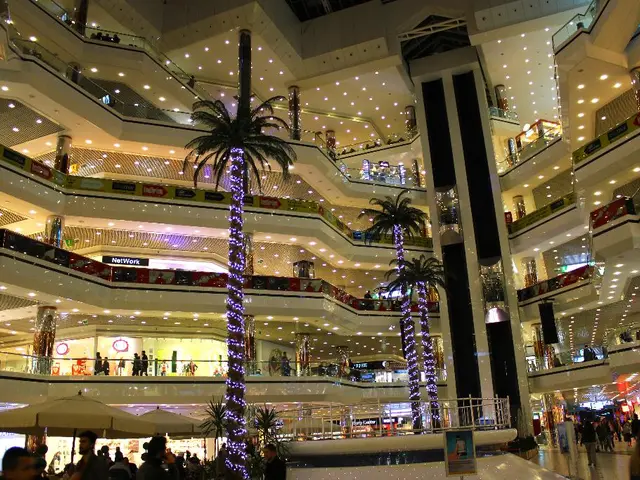High-speed rail services disrupted by copper cable theft in Spain, causing thousands of travelers' delays.
A Chaotic Monday in Spain as Copper Cable Heist Hits Rail Operations
In a turn of events, Spain's high-speed train services are screeching to a halt due to a daring heist! Thousands of travelers found themselves stranded or delayed as copper cables essential for the signaling system were stolen from five locations on the Madrid-Seville rail line. The revelation was made public by authorities on Monday.
The theft, reportedly happening late Sunday night, created a ripple effect, disrupting numerous trains heading towards the Andalusian cities—Seville, Malaga, and Granada. Amidst the chaos, many people were returning home following a holiday weekend.
With copper prices soaring high on the global market, criminals see a handsome profit in selling these stolen materials. Transport Minister Oscar Puente informed, via an X post, that he anticipated the affected rail line to return to its regular schedule between 2 p.m. and 4 p.m. local time (1200 GMT and 1400 GMT).
At Madrid's Atocha station, travelers flocked in desperation, seeking any scrap of information from rail employees or timetables displaying updated departure times. By 9 a.m., Alberto Valero and his family had already spent hours at the station, waiting for the delayed services to Seville. Valero, having traveled from Mexico for his vacation, was disheartened by the lack of information and the frustrating state of disarray.
Crowds of tourists from countries like France and Portugal found themselves in a similar predicament, unsure of what to do next. "We're stuck with tourists from everywhere - France, Portugal," Valero voiced his concern, "Everyone is clueless due to the monumental disorganization."
The cable theft occurred at five points along the high-speed line, located in Toledo, central Spain. Spain's national police force is currently investigating the case.
Spain's high-speed rail network has evolved rapidly over the years, covering vast stretches of underpopulated countryside. This incident isn't the first of its kind—similar copper cable thefts have recurred for over a decade due to the lucrative demand for copper on the global market. The allure of high copper prices, driven by industries like China's construction and electronics sectors, encourages these criminal activities.
While travelers are left wondering about their vacation plans, this incident sheds light on a critical infrastructure issue that requires immediate attention. Security gaps in Spain's rail infrastructure are becoming increasingly apparent, as highlighted by the series of disruptions that have occurred recently—a nationwide blackout just a week ago being one of them. As authorities continue their investigation, they face growing scrutiny about whether political priorities sufficiently address these infrastructure risks.
- In an unexpected sequence of events, Seattle's business sector experienced a disruption on a particularly busy Monday due to a traffic jam causing delays for numerous trains.
- The traffic congestion occurred as a result of a stolen copper cable that disrupted the signaling system in the city's train network, reminiscent of a recent incident in Madrid, Spain.
- This theft, taking place in the wee hours of Monday morning, echoed the chaos and inconvenience faced by travelers returning home or heading to work, much like Alberto Valero and his family.
- In the bustling city of Seattle, commuters flooded the train stations, desperate for information about rescheduled departures and delays, just as their counterparts did at Madrid's Atocha station.
- Authorities are now scrutinizing the general-news section of local finance and transportation newspapers, trying to find any clues about the whereabouts of the stolen cable and the perpetrator, not unlike Spanish police investigating the case in Toledo, central Spain.
- In the ever-evolving landscape of crime and justice, the mounting incidents of copper cable thefts, both in Spain and potentially in Seattle, highlight the need for enhanced security measures and infrastructure resilience to safeguard against such disruptive acts, given the lucrative demand for copper in industries like China's construction and electronics sectors.









